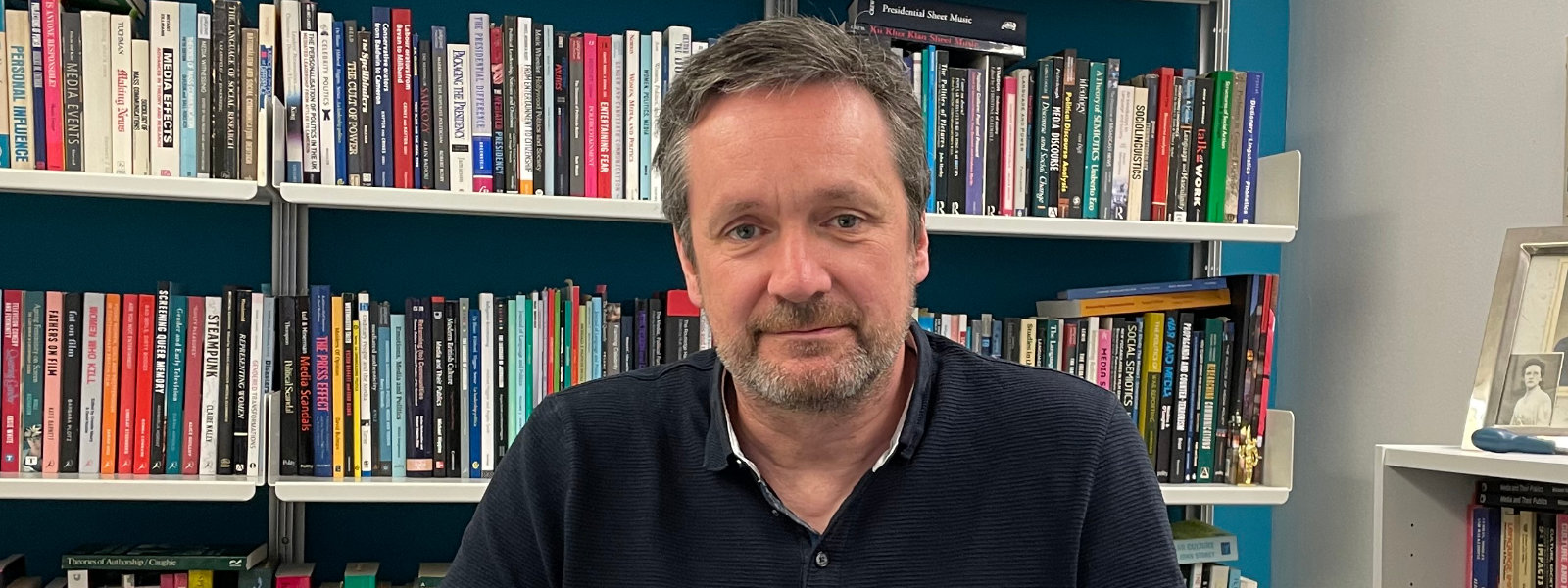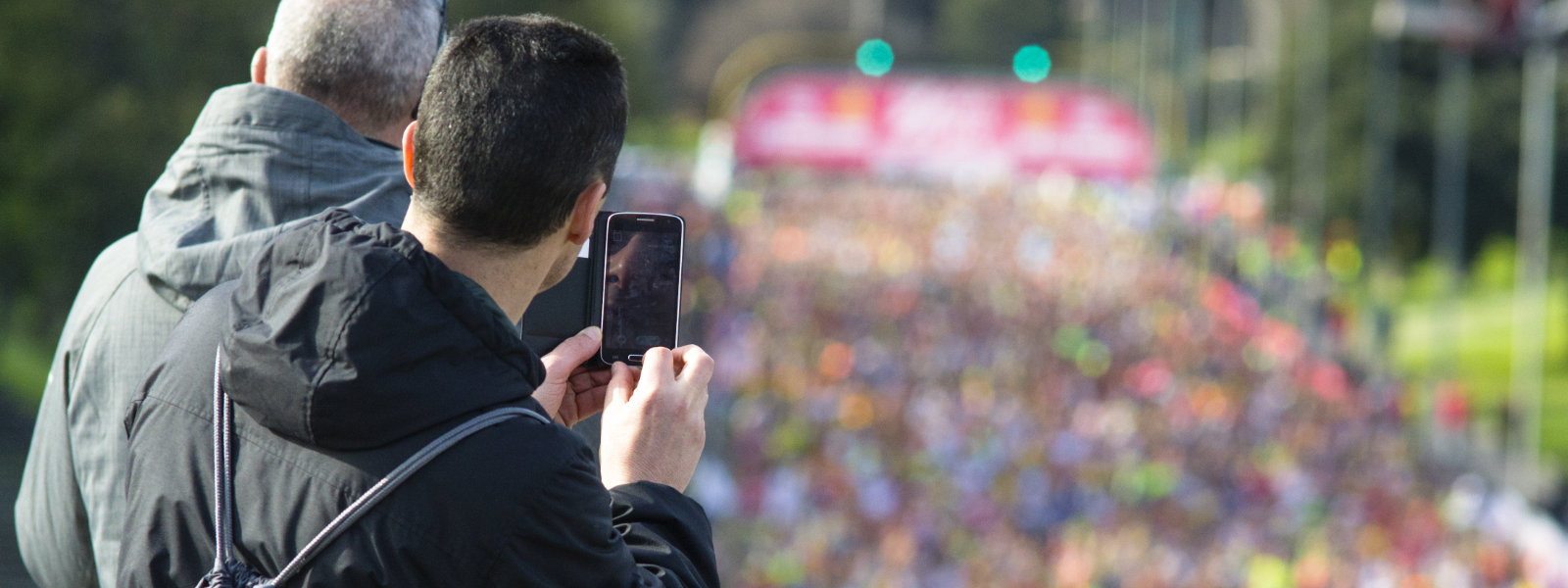
9 February 2023
What is your first interaction with media on a typical day?
According to one commercial survey, 70% of smartphone users check their phone within an hour of waking each morning. Other studies estimate average daily smartphone screentime at around the three hour mark.
If indeed a majority of subsist on a pre-breakfast diet of headlines and push notifications, this is just one of many ways in which media now permeates our consciousness in ways unimaginable twenty years ago.
As our relationship with media has recalibrated, so too have we seen a rapid expansion of academic research into the potential effects and consequences. As traditional barriers between media creators and consumers have broken down, so too have scholars re-focused their efforts on defining codes of media ethics.
Dr Michael Higgins is Programme Leader for the MLitt Media and Communication within Strathclyde's School of Humanities. An expert analyst on meeting points of politics and media, he is an authority on mediated populism: how populist political sentiment exists and is expressed via media.
Dr Higgins, as a Foucauldian by instinct, is particularly interested in power dynamics in media - and how these dynamics have shifted during the past fifteen years' feverish technological and political change.
“Media remains the only real contact that we have with those who rule us," says Dr Higgins. “Almost all of our interactions with power now are mediated - whether dealing with tax authorities or signing up for seminars.
"If you want to understand anything of the consequences of that, you have to study media: how it operates and how it has come to be as it is.”
Shifting balance of power
How has our digital mini-revolution altered the distribution of power in media?
One of the chief transformations, Dr Higgins says, is an increasing symmetry of power between media users and producers. More than simply a tokenistic nod to audience engagement, media outlets increasingly have their agenda set by user-generated topics.
And with media’s agenda-setting function increasingly diminished in a fragmented social media landscape, Dr Higgins feels that it's never been more important to train communicators in ethics.
“Communicators are citizens like everyone else. But they are citizens with far greater responsibility than others. We want our students to be better communicators than the norm, but we also want them to realise the consequences of communication and the ethical implications of what they do.
“Being ethical is about being measured about the imperatives of communications technologies - its brevity and immediate persuasiveness.”
This caution around seductive simplicity in media messaging echoes topics in Dr Higgins's research on political populism and how it has survived and thrived in media.
He argues that that more traditional forms of media – soundbite television in particular - helped lay the ground for a rise in populism in the digital age. A shift in media logic, Dr Higgins argues, created the ideal conditions for populist sentiment to explode with mass adoption of social media in the late 2000s.
“Populism succeeds primarily because it’s media-friendly. As a political style it depends upon the repetition of simplistic political cliches and tropes. And social media has provided more scope for populist politicians to work in concert with fanbases to confect and distribute reductive interpretations of complex realities."
But he insists that much responsibility lies with more traditional forms of legacy media.
“Disinformation rarely emerges as the consequence of one crank deciding that something’s true. There has to be a critical mass behind it. Many media outlets have a significant role in amplifying and distributing misinformation because it’s in their interest to do so.”
Super-acceleration
Dr Higgins says this focus on the political and ethical consequences of digital change is something that draws students to the MLitt Media & Communication. With an increasingly diverse international body of students, the programme offers opportunities to examine media and ethical considerations in a global context.
When tracing the history of Media & Communication in the academy, he notes that many recent innovations have come from emerging scholars – particularly those in China and Africa - analysing regions that have witnessed the “super-acceleration” of media.
This global context opens up opportunities for MLitt graduates both academically and professionally. "We are an increasingly international market and a great many of our students will go into organisations which require them to communicate in a variety of national contexts. So the better the understanding you have of cross-national communication, the more marketable you are."
Whether preparing for research or careers in communications or marketing, there is one fundamental outcome that underlines everything students study on the course: students will be trained to be better communicators than everybody else.
"But we’re really interested," says Dr Higgins, "in students who are changing the terms within which we communicate for the better."
Part of this, he says, involves sober recognition of the limitations of media technologies – where it ends and where it begins.
“After lockdown, I think we’ve become much more aware of how important co-presence is as a component of life – to actually see and be around people. That should impress upon us that we are the masters of media - media are not the masters of us.”
- Learn more about the MLitt Media & Communication.
- Discover other study options in Journalism, Media & Communication.
